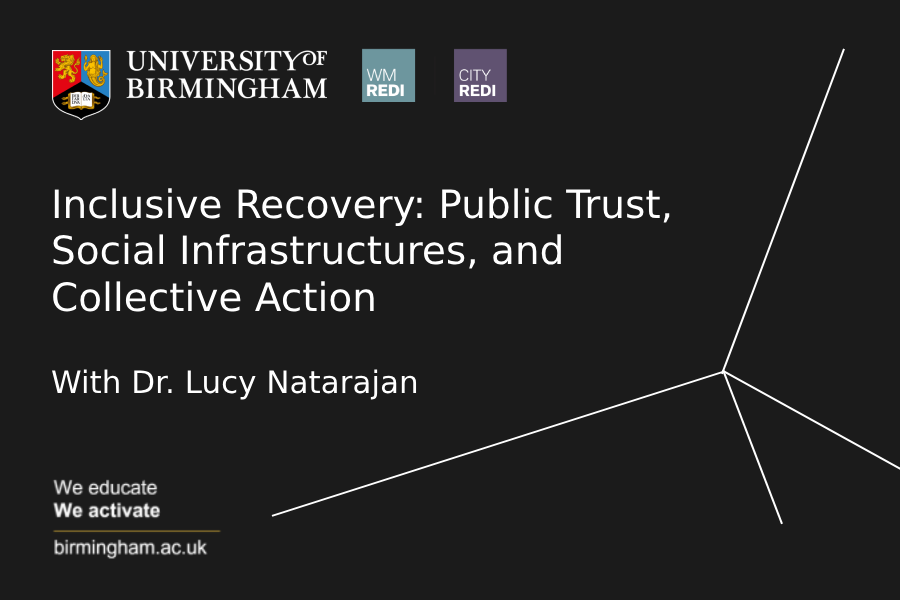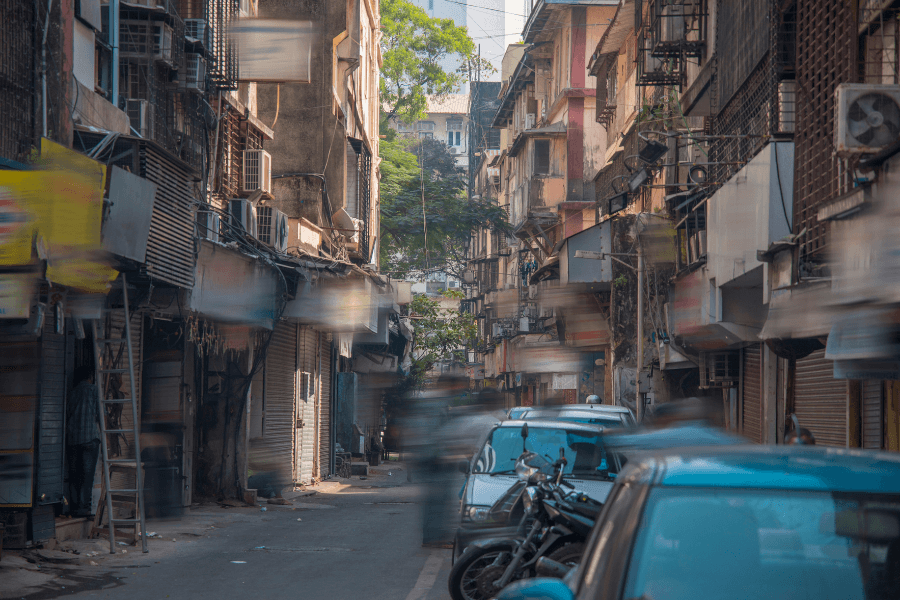
On 29 February, City REDI hosted its first speaker of the 2024 academic seminar series, Dr Lucy Natarajan from the Bartlett School of Planning. In this blog, Sara Hassan summarises the key points raised by Lucy in her presentation.
Lucy presented her latest work which delves into the intricate process of recovery from disasters, stressing the significance of addressing both immediate and long-term impacts.
Reflecting on her involvement in shaping an international framework for participatory democracy, supported by a grant from UCL’s Built Environment faculty The Bartlett, she navigates the complexities of implementing participatory democracy amidst crises such as the COVID-19 pandemic and the Beirut port explosion. She underscores the importance of trust in public institutions and highlights the role of social infrastructures in facilitating recovery efforts.
In examining the UK context, Lucy sheds light on issues like public trust, inequality, and reliance on charitable services, advocating for a more inclusive recovery agenda that addresses structural challenges and promotes shared humanity. Ultimately, Lucy advocates for a shift towards long-term sustainable development goals in recovery endeavours.

Inclusive Recovery: Public Trust, Social Infrastructures and Collective Action
In times of crisis and disaster, the immediate response is crucial, but it is the journey towards recovery that truly tests the resilience of communities and societies. From natural calamities to human-made catastrophes and the ongoing challenges posed by the pandemic, the need for effective recovery strategies has never been more apparent. As we delve into the intricacies of recovery, it becomes evident that words matter, policies shape actions, and the involvement of communities is paramount.
Communities face a diverse array of disasters, blurring the lines between natural and human-made emergencies. Amidst these challenges, the concept of recovery has taken centre stage, sparking a renewed focus on resilience over the longer term. Recovery, as a response to crisis, encompasses not only the immediate shock but also the long-term erosion of capacity within communities to withstand impacts.
At the heart of the recovery agenda lies the “Roadmap to Recovery”, a key policy document crafted by the HABITAT Professionals Forum of the UN. This roadmap serves as a guiding light, emphasising the need for integrated approaches that address not just physical infrastructure, but also social processes and ecological concerns. With propositions for greater engagement with communities, the roadmap sets the stage for inclusive recovery efforts.
As we navigate the complexities of recovery, drawing upon international frameworks of participatory democracy is essential. While aspirations for greater community engagement exist, the path to meaningful participation is fraught with challenges. The need to decolonize approaches to global development underscores the importance of diversity and inclusivity in recovery efforts.
In Lucy’s journey towards shaping recovery policies, she had the privilege of collaborating with diverse stakeholders, from academics to practitioners. Through online fora and collaborative initiatives, her team explored the multifaceted nature of recovery, delving into the intersections of social infrastructure, collective action, and public trust.
In the wake of disasters and the ongoing challenges faced by communities, the resilience of civil society emerges as a beacon of hope. From grassroots efforts to international collaborations, the spirit of collective action fuels the recovery process, bridging gaps and fostering solidarity.
However, as we chart a course towards recovery, we must confront the realities of inequality and systemic challenges. In the UK context, issues of public trust and social infrastructure underscore the need for nuanced approaches to recovery. From food bank reliance to the erosion of social capital, the recovery journey is riddled with complexities that demand thoughtful interventions.
As we strive towards inclusive recovery, we must prioritize the voices of those most affected by crises. By amplifying community-led initiatives and fostering genuine partnerships, we can build a more resilient future for all. Ultimately, recovery is not just about bouncing back; it’s about forging ahead towards a more equitable, sustainable, and inclusive world.
This blog was written by Dr Sara Hassan, Research Fellow, City-REDI, University of Birmingham.
Disclaimer:
The views expressed in this analysis post are those of the authors and not necessarily those of City-REDI / WMREDI or the University of Birmingham.
